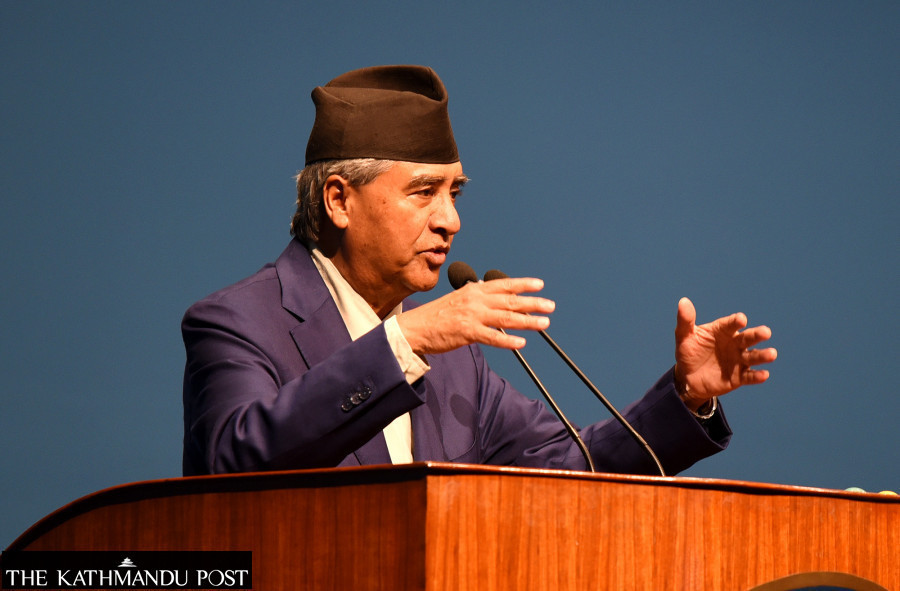Editorial
A litany of failures
The first year of Deuba's fifth term is a story of unfulfilled promises—and disillusionment.
Had democracy been functioning well, Sher Bahadur Deuba would not have become the prime minister for the ongoing term. But politics often brings out the unlikeliest of results. So Deuba became prime minister even when he did not have the popular mandate after the Supreme Court defenestrated KP Sharma Oli and paved the way for his entry into the Prime Minister's Office. After months of relentless attack by KP Sharma Oli, the democratic process had finally come back on track. Thus, if there was one job that Deuba was expected to do without a glitch—to keep the democratic process on track and translate the idea of good governance into practice. After all, his partymen had been bragging for long that they would show by example “what good governance looks like.”
A year on, Deuba is following in the footsteps of Oli—the last thing that the citizens expected him to be. But old habits die hard. Not only does Deuba have a history of scuttling democracy when he was in power two decades ago, he has demonstrated that he hardly has the will to mend his ways even when he is provided with a historic opportunity to get things right. Deuba had vehemently criticised Oli when he introduced an ordinance to split political parties. But Deuba introduced the same ordinance when he had to help split the CPN-UML and fulfil the narrow political interests of the anti-Oli alliance. And now, he has attempted to tweak the Constitutional Council Act bill, repeating the same act of Oli that he had criticised with all his might.
What's more, this has been a year of misgovernance. For a long time, Deuba remained a mute spectator even as his finance minister Janardan Sharma was alleged to have committed grave policy corruption by inviting two outsiders to manipulate the tax rates right before the budget was presented in Parliament. Not only did Deuba fail to take appropriate action on time, he has failed to appoint another finance minister and kept the portfolio for himself at this crucial hour when the economy is in dire straits and needs robust leadership in the ministry. In effect, Deuba has shown once again that regardless of which party leaders belong to, they are just two sides of the same coin, focusing only on their interests and cronyism while disregarding the interests of the people who have voted them to power.
The prime minister's own party, the Nepali Congress, has been irked by his leadership—or lack of it—notwithstanding the fact that his party won the highest number of seats in the local elections. He has faced not only criticisms from the top leadership of a rival faction within the party, but also protests from sister wings for his mismanagement of the party. And then there are dissenting voices from the ruling alliance. The alliance, of which he is the leader, is founded on mistrust of each other, which is evident in the speeches of the top leaders of the parties. Strange bedfellows, they had come together not because of any ideological meeting point but a common interest to remove KP Sharma Oli from government. They are, therefore, keen only to fulfil their narrow interests although they have vowed to keep the alliance intact until the next general elections.
Deuba may be a politically skilful person who can deftly conduct backdoor manoeuvrings, but governance has never been his forte. This time, in his fifth term, he had a chance to prove everyone wrong and demonstrate that he is good at governance as well. But the first year of Deuba's fifth term is a story of unfulfilled promises and disillusionment. It is high time he mended his ways so that he remains true to the ethos of democracy and governance that he harped on so much before leading the government.




 18.12°C Kathmandu
18.12°C Kathmandu














